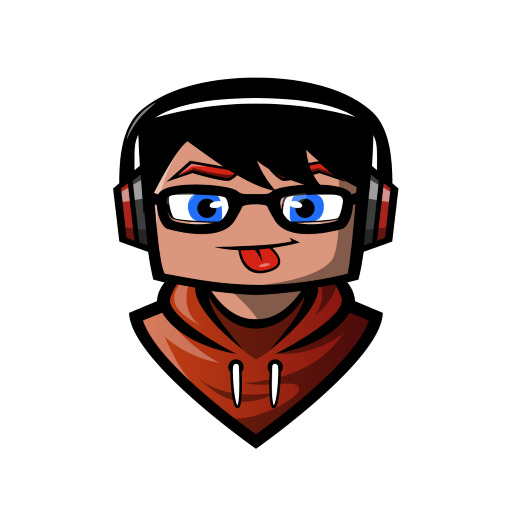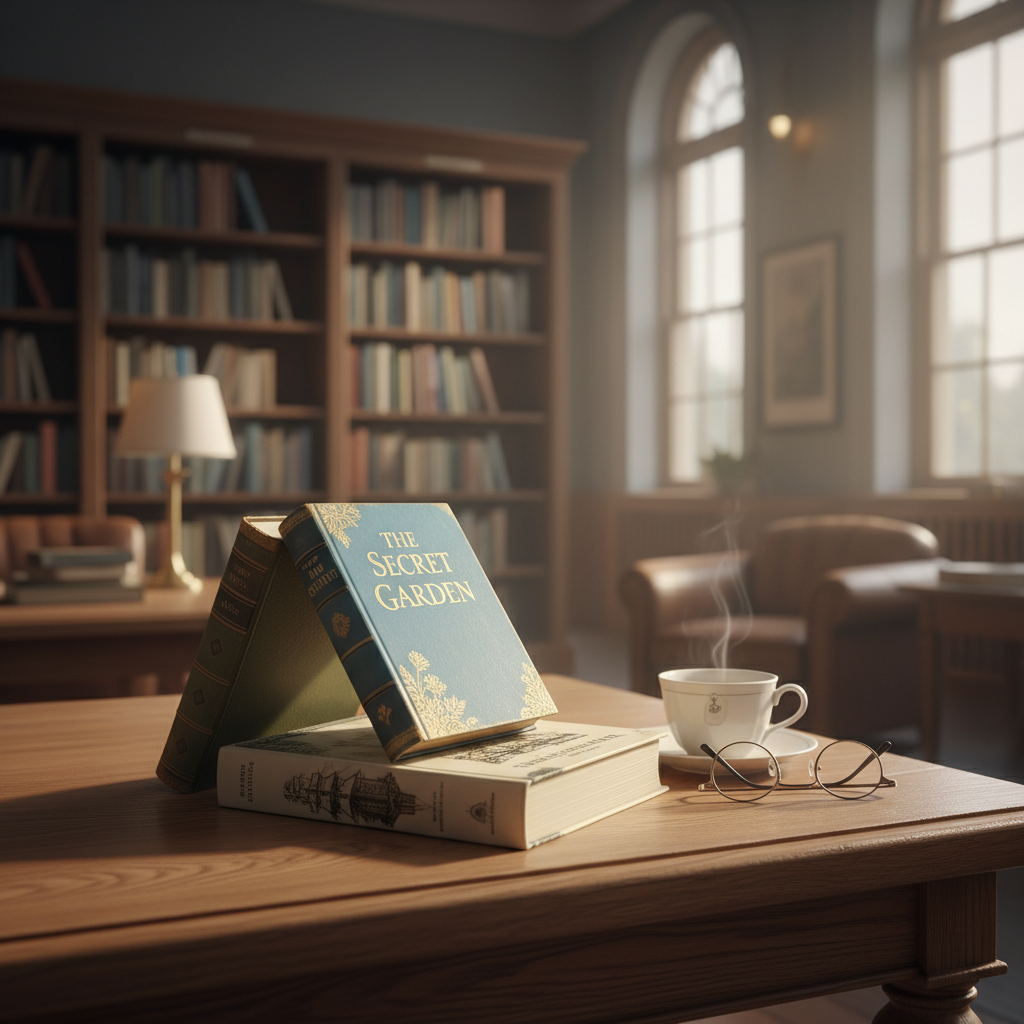Episode Transcript
[00:00:00] Speaker A: Foreign.
[00:00:15] Speaker B: Guys. So this week's episode of Critical Defiance is a little bit different. We sort of took a pause between episodes to look at listener feedback and play with the way we do things.
And we're going to make some changes going forward. A little bit less on the hot takes on the news and a little bit less on, you know, that kind of, I don't know, reactionary stuff that's just not playing well for us or our.
[00:00:39] Speaker C: This. The.
The system's kind of been flooded with that, and we still have thoughts and ideas and feelings on the. That's going on. We want to be something more helpful. Unless, yeah, Trump did something again.
[00:00:57] Speaker B: What we found was when we started doing this, it was great. It was a good reaction, it went over well. And then about a month later, everybody was doing it.
And, you know, in podcasting, you really don't want to do that.
So here we are reflecting and looking at feedback and going, you know what, let's make this thing a little bit more interesting, a little more educational, a little more discussion oriented, a little more uplifting.
Yeah, yeah, absolutely. Something to smile about, something to look forward to instead of another take on the news, you know, so big changes coming to Critical Defiance, which I think is awesome.
And along with that, we're going to be shifting our cadence. We're going to be going to two weeks, basically, episodes every 14 days instead of every seven days. Since we're not playing catch up with the news, this gives us more time to put together better episodes, better content, book guests. So we've got all these changes, and I think there are some changes. I think we've got some stuff to look forward to. We're shifting gears in terms of the episodes we've got upcoming. So we're not gonna do a preview for the next one quite yet because we've got. Right now we've got four or five really good ones that touch on topics that nobody else is doing. Right. And now it's just a matter of, okay, which one do we want to do in what order?
So once we get that down, we'll announce probably a slate of upcoming episodes as opposed to just what the next episode is, which is kind of cool. We'll also be announcing our next special, which I think is going to be awesome. I have no idea what that is yet, but again, we've got it down to three ideas.
[00:02:29] Speaker C: We've also been working to add to the website and our socials. I know we've talked about having a TikTok for a minute now. We also now Have a Discord. So y' all should join us over there. We have a bunch of conversation boards and stuff like that.
[00:02:46] Speaker B: Discord is awesome. There's only seven people on it right now.
[00:02:49] Speaker C: And I'll be.
[00:02:50] Speaker B: Change that, all of you.
[00:02:51] Speaker C: I'm very unfamiliar with Discord, so if any of you are also unfamiliar now, you can know that we're learning it together.
[00:02:58] Speaker B: Yeah, I've been using Discord for years, but this admin stuff is like.
[00:03:02] Speaker C: I know. I believe it's on the Discord server. And over on the website, we want to. We'll slowly be putting up things like polls to have you guys also included on what our next topic may be. Because at this point, enough of you are sitting here listening to us bullshit that we really want to know your opinions and we want to know what you want to hear about, and we.
[00:03:25] Speaker B: Want to get you in on the conversation.
Yeah, yeah, absolutely, Bobby. You know, that's. And that's a good jumping point. We're going to go whole hog with that, primarily on the Discord and the website. But, yeah, there's going to be polls, there's going to be feedback surveys. We're going to publish the results of those, we're going to talk about them on the air. We're gonna do all sorts of interactive stuff. So stay tuned, keep your eyes on the Discord and the website, and we will absolutely have some new and exciting stuff dropping.
[00:03:50] Speaker C: Because when it comes to surviving this country and everything that's going on, something really big is community building. And with the Discord and with the website, and just with all of you who listen to the podcast, we'd like to start a community, make everybody feel like they have a place to go to learn or feel empowered or, you know, just have a place to go to. Yeah, just chill and maybe take a minute to get away from the dystopia of what's going on.
[00:04:23] Speaker B: We can find our Zen together.
So let's get that Discord going. Help us jump started, guys. And now I think it's time to pivot and start talking about libraries. Bobby.
So we sat down and talked to a librarian. Not just like a run of the mill, 70s librarian, somebody who's actually studied library sciences at a high level and who also works as a librarian. And we had a lot of questions. We got a lot of insight into modern libraries and what they're like. But I know you had some thoughts that you wanted to share, too, and you didn't get to be a part of that conversation.
So what is in, Bobby's? Brain when it comes to the modern.
[00:05:04] Speaker C: Honestly, when I think about libraries, one of the first things I think of in like, you know, our current political climate and our current environment is that they are one of the most important social programs that we still have as a country.
And people don't realize that a library is more than dusty old books.
Libraries, you guys probably talked about, you know, stuff like this, but, like, you can get games, you could get music, you could get movies. There are libraries that have seed libraries to help you start your own garden.
[00:05:39] Speaker B: There's libraries of things where you can.
[00:05:41] Speaker C: Get the tools to work in that garden. Tools. I know some libraries you can rent, like power tools or gardening tools. And even on top of that, libraries are just great resources. I've always thought librarians were almost magic with how much they know. Like being able to walk into a library and be like, I read this book 20 years ago. The COVID was this color, one character was named this. And a librarian could help you find that book immediately. But also, librarians can help with more serious situations like finding social programs. You can go to a library and work with a librarian, and they'll help you be able to navigate sites that would probably be a bit overwhelming on your own. It's a great place for access for computers for kids and lower income families who can't have a computer at home. But we're in an era where all homework and classwork usually needs a computer involved at some point.
And libraries are also a great way to become a part of your community.
When we're talking about book bannings and being upset that they're trying to take out queer books and things like this, if you can become part of your local library's committee, you can have your voice heard about what books we leave and stuff like that. Like, there's so much what happens to.
[00:07:01] Speaker B: The library itself, because more and more nowadays. And we will talk about this a little further on in this episode, the thing that gets attacked isn't the book or the list of books anymore. It's the library and the services that underlie it.
Without further ado, why don't we pivot to our conversation with Paige about libraries and everything that that means nowadays, as opposed to the dusty idea we have of what one looks like from when we were kids, foreign.
So let's play a little word association.
When I say library, what comes to mind?
For a lot of us, it's probably a building filled with book. Maybe a stern librarian shushing kids. It's a place for homework, research papers or Finding that perfect summer read.
[00:07:55] Speaker D: Yeah, it's a pretty nostalgic picture.
But what if I told you that image is about as current as a rotary phone?
Today's libraries are less about dusty books and musty card catalogs and more about community hubs, digital access, and even fighting for our right to information.
[00:08:18] Speaker B: Absolutely. We're talking about a transformation. Libraries are a vital and often overlooked part of our public infrastructure. They're offering everything from free WI fi and computer classes to job search assistance and mental health resources.
They've become an essential safety net for so many people.
[00:08:36] Speaker D: But here's the thing.
While libraries are evolving to meet the needs of the 21st century, they are also under attack.
We are seeing an unprecedented number of book bans and challenges to what they can offer.
It's a fight for who controls information and who gets to decide what's acceptable for our communities to read and to learn.
[00:09:03] Speaker B: This week, we're diving deep into the modern library. We'll explore the incredible and sometimes unexpected services they're providing for adults in particular.
We'll also look at the coordinated efforts to dismantle these institutions and what that means for American freedom.
[00:09:20] Speaker D: So get ready to rethink what you thought you knew about libraries, because they aren't just about borrowing a book anymore. They're about preserving our access to information and building stronger, more resilient communities.
Joining us today in our discussion about libraries is Paige.
She is currently near her master's degree in library science, I believe. Is that correct, Paige?
[00:09:48] Speaker A: Library and Information Sciences.
[00:09:50] Speaker D: Library and Information science.
She has been both an academic and a public librarian, but her heart really lies in the public library community.
So she'll be correcting Niels and I whenever we screw up on certain topics here. Hopefully, she'll lead this discussion because she is absolutely the expert in the room today.
[00:10:14] Speaker B: No pressure.
[00:10:15] Speaker D: Yeah, try to keep it light.
[00:10:18] Speaker B: So picture a library, but erase everything you think you know. It's time to discover how these spaces are quietly reinventing themselves for our digital, divided and diverse age.
This is not what we grew up with, what we used as kids or in school. This is a whole different animal made for a new age of things.
[00:10:36] Speaker D: For example, jobs and skills.
When I was a kid, you didn't go to a library to write your resume or to search for a job.
Today you can join a free resume workshop. They have computer literacy classes because, let's face it, most jobs today you apply for online.
They have job search databases.
This is a crucial resource for those who don't have Internet access at home. And there are more of them than you may realize.
[00:11:09] Speaker B: Yeah, yeah. It's a bigger audience than a lot of people realize, especially as we move toward the Midwest and away from the coastline. And that's not anything but the typical American tech disparity. But it's gotta be mentioned, because if you live in a locale where really good high speed broadband is not something that's available at every doorstep, then the library and your school are probably the two main places you're using those resources.
[00:11:32] Speaker A: Just a little tidbit here, but since the COVID pandemic, a lot of libraries have been circulating hotspots to people.
[00:11:39] Speaker B: Interesting.
[00:11:40] Speaker A: So you can check out a hotspot from your local library and take it home, take it wherever you need in order to have Internet access. Now, I think my library, my current library, has 27 hotspots that started with a grant. During COVID there was a lot of federal support for libraries.
[00:12:00] Speaker B: Gotcha.
[00:12:01] Speaker A: Particularly in rural areas where Internet access was more of a challenge. But, yeah, there's a lot of technological equipment at libraries.
[00:12:10] Speaker B: Yeah.
[00:12:10] Speaker A: Not just hotspots.
[00:12:12] Speaker B: I discovered at my local library, I can do things like check out a photography package to film a wedding.
[00:12:17] Speaker A: Yep.
[00:12:18] Speaker B: And I just. I was not ready for the library of thing that blew me away.
[00:12:22] Speaker A: The library of things is. It's like my. It's my favorite thing to tell people about because you just see their eyes, especially kids, and be like, hey, you can check out an Oculus from us. And they're just like.
[00:12:36] Speaker B: Yeah, yeah, yeah, yeah. So, yeah, between tech and access and where that takes us as community, when we talk about bringing people into the room, we talk about something that we talked about in our earlier conversation was that third space concept. Would you mind breaking us into that?
[00:12:53] Speaker A: Yeah. So the idea of a third space is that in our lives, we have our home space and our work or school space.
But what is our third space?
Where do we go to find community?
In some places, it's a community center, or in some communities, it's a church.
But libraries really want to provide that space for their communities, because the heart of public librarianship is community support and community building and being responsive to the needs of their community.
[00:13:26] Speaker B: And that brings me to another place where libraries have evolved. As I did my research for this episode, I was looking around different libraries and different systems in different places, and I kept bumping into things like social work services, mental health services. Even if it's just from the referral end of things, how do you get those resources?
The door is more open than it was five or 10 or 20 years ago.
[00:13:49] Speaker D: Than providing the source to get people connected to what they need to connect to.
[00:13:55] Speaker B: And to see all of that connection in public services in general, things that people often don't even know they have access to is great.
[00:14:03] Speaker A: It really. It can be the pulse of the community. A lot of public libraries have social workers embedded in them.
[00:14:08] Speaker B: Yeah.
[00:14:08] Speaker A: As well.
[00:14:10] Speaker D: Embedded in them.
[00:14:11] Speaker A: Yep.
[00:14:11] Speaker D: Wow.
[00:14:12] Speaker A: Yep. So, like, the social worker in my library system moves around between the branches. I work currently in a county library system, and we have six branches. There is a social worker who is employed by the county, but who is stationed at the library, and she moves from branch to branch on a schedule. And she's an amazing community resource.
[00:14:35] Speaker B: Yeah, that's brilliant. That's an absolutely brilliant use of the library.
[00:14:39] Speaker A: We also are heating and cooling stations when during extreme weather. So all the branches of my library system.
[00:14:47] Speaker B: Yeah, that makes a lot of sense. Again, something you wouldn't think of, but it makes a hell of a lot of sense.
[00:14:51] Speaker D: Yeah. What really bothers me, though, is how many of the people who need these services know that they can just walk into their local library and find them.
[00:15:02] Speaker A: I don't have as many as you want. Like there. There are several at every library I've ever worked at. There have been there. There have been a handful of unhoused people who know that they can come into the library. The library tends to be like, the police know about the library as a resource place. Social workers know about the library as a resource place. So if they are able to come in contact with services that can point them at the library and also word of mouth, then we get them. But it doesn't matter where you are and what library we're talking about. Every library is up against the old idea of what a library is.
And we are constantly trying to make sure that our communities know that we are here as a resource.
[00:15:51] Speaker D: And you'll forgive me, I am old. So a lot of these ideas are new to me.
So basically, less people than you might think.
More people than you might think, but less people than you would hope are aware of these services.
[00:16:07] Speaker A: Basically.
[00:16:07] Speaker D: Yeah.
[00:16:07] Speaker B: Good way to put it, Bill.
You know, when I walked into my local library, I was hit with the creator space.
[00:16:16] Speaker A: Yes.
[00:16:17] Speaker B: I. What now? What. What is this? What have you people done? They have.
[00:16:22] Speaker A: Isn't it amazing?
[00:16:22] Speaker B: Print.
[00:16:24] Speaker D: And why haven't you told me?
[00:16:26] Speaker B: They have two 3D printers. They have a laser cutter, a laser etcher, a button machine, a mug machine. I'm like, whoa, I could do a Whole marketing campaign in here. But yeah, I was blown away. And then I bumped into the library of things stuff and then there was the seed library. And I was like, it just goes on. But wait, there's more.
So before I jump out of the modern library section, is there anything you want to break out or go into?
[00:16:51] Speaker A: Just to reiterate that libraries have had to become responsive to their community needs in order to stay relevant. Especially as our media consumption has changed.
[00:17:04] Speaker B: Has evolved.
[00:17:04] Speaker A: Yeah, has evolved. Exactly. And libraries have to evolve as well.
You don't necessarily think of the library as being on the cutting edge of technology or information science, but that is.
That is an important part of modern librarianship is understanding the technologies that your community is using and being able to help them navigate that. Particularly right now, in a time when the average person is just getting fire hosed with information. And some of it is good and some of it is utter crap.
And people have to figure out how to evaluate their information that the information that they are being fed and librarians are perfectly positioned to help them with that.
[00:17:55] Speaker B: Yes. And to do the research, to do the actual homework, to do the critical thinking. To draw their own conclusions.
[00:18:00] Speaker A: Exactly. To teach people how to evaluate the information that. That they're presented with.
Which is part of the reason it is so distressing that so many schools are getting rid of their librarians.
[00:18:13] Speaker B: Yes.
[00:18:14] Speaker A: There are entire school districts that have one librarian that goes around to all the schools.
[00:18:19] Speaker B: Wow.
[00:18:19] Speaker A: And they're in each school for one day a week. And that's.
That. That's appalling to me.
[00:18:25] Speaker B: I think it doesn't acknowledge the necessity of what a librarian does.
[00:18:30] Speaker A: Absolutely.
[00:18:30] Speaker B: I think it devalues it and makes it optional when it should and always was in my time core.
[00:18:37] Speaker A: Yeah. And I think a lot of that comes from old ideas about what libraries are and not connecting the dot between information evaluation and librarians. That is we.
[00:18:50] Speaker B: Where else are you going to learn to be a consumer of information? Because you certainly don't in most modern school settings.
[00:18:57] Speaker A: Given.
[00:18:57] Speaker D: Given this topic.
We don't have to delve deeply into this, but I think it's important we touch on the fact that a significant portion of. Of the population would rather we not decipher what information is valid and what information.
[00:19:14] Speaker B: This is true.
[00:19:15] Speaker A: Yeah.
[00:19:16] Speaker D: Critical think, literally critical thinking is under attack.
[00:19:20] Speaker A: Yes. And librarians are getting that pushback after November of last year. I just.
I just waited because I knew that they were coming for us. And yeah, librarians will fly under the radar for a little while.
But as soon as somebody reads the ALA Code of ethics or realizes that.
That librarians are there to teach everybody critical thinking, they're there to help everybody.
That we would be a target. And with IMLS having its funding cut, the Librarian of Congress being removed.
[00:19:59] Speaker B: It's already starting.
[00:20:01] Speaker A: It is.
[00:20:02] Speaker B: It's already starting. It's a larger. It's a big piece in a larger war on information. And that war for us is always marked in the public eye, I think, by book bands.
[00:20:12] Speaker A: Yes.
[00:20:13] Speaker B: You know, that's where it starts to really gain steam in terms of where people see it. But that's not the whole package we can talk about.
[00:20:20] Speaker A: No, I was just going to say I think they wised up because book banned. They're a bad look. Right. They're a look across the board, a bad look.
But if I say ILS has been defunded, unless you are a librarian, you don't really know what that means.
[00:20:38] Speaker B: Yeah. You want to explain it a little bit for those of us that are clueless?
[00:20:42] Speaker A: IMLS is the Liedtz Institute for Library and Museum Studies. It's the federal.
Where all of the federal funding comes from for smaller public libraries.
I am very lucky in that the library, the system that I work for now and the system that I'm going to be working for very soon, both do not rely on IMLS funding for too much.
But there are. There. There are entire libraries that are only open because of IMLS funding. Our grants, their technology grants, the hotspots that I was talking about. That was an IMLS fund. That was a grant.
Yep. And typically the way it works is the IMLS funding goes into the state library, and in the state library distributes funds, and then the libraries that receive those funds have to show how they are using them and what they use them on. There's a lot of statistics reporting that goes on.
[00:21:44] Speaker B: Okay.
[00:21:44] Speaker A: And I love data. I'm not like a mess person, but I love data. And you can go through just these huge, long spreadsheets that have, you know, every library in a state and how much money was spent at that library and on what, like how many registered users they have, how many items they circulated, how many items are in their collection. You can find all of that information out, and it's funneled through IMLS databases.
[00:22:13] Speaker B: Gotcha. So even the statistical data, the usage data, is at risk now.
[00:22:18] Speaker A: Oh, yes.
[00:22:19] Speaker B: We were going to talk about the book banning frenzy, but why ban books if you can basically go for the foundation of the library system.
[00:22:27] Speaker A: Exactly. If you close the library, you don't have to ban the books.
[00:22:30] Speaker B: Exactly.
Wow. And it also, it ties to something we've seen in the last couple years, which is a disproportionate move on the right to join library boards, join school boards, get involved in those sorts of public institutions. At a very low level, actually.
[00:22:49] Speaker A: Yep.
[00:22:50] Speaker D: Or at a high level. If you look at the Kennedy center.
[00:22:53] Speaker B: This is true at any level.
[00:22:55] Speaker A: They can.
They definitely don't dismiss lower levels.
[00:22:59] Speaker B: But this new focus on the lower level is something that the left isn't doing. And we're really at a disadvantage because these guys are starting to get a foothold.
[00:23:08] Speaker A: We are.
We are starting to see the consequences of the left and the center's benign neglect of lower level things.
[00:23:19] Speaker B: So here's a question.
How much warfare goes on in budgets nowadays when it comes to politics?
Is it heavily politicized nowadays or is it still the town's library budget?
[00:23:31] Speaker D: I can't imagine it not being politicized. Everything is politicized today.
Yeah.
[00:23:37] Speaker A: I'd never known a library budget to not be politicized. Even when I was in the academic library, there were massive cuts to academic funding at the tail end of my time there. This was in the like 2000 teens.
It was a really difficult time. There was a lot of downsizing happening.
Our academic library closed one of the branches.
We had a main library and then we had three branches and one of the branches closed and one of the other branches dropped down to part time. So the music library was only open on like Monday and Wednesday, and those employees were at the main library for the rest of the time.
We downsized staffing models. Library funding has always been political. It's always been one of those things that people want to cut because they don't understand the depth and breadth. Yeah, exactly.
[00:24:35] Speaker D: Just as a point of reference.
And I have no doubt what you're saying, Paige, is valid. But if you think that academic libraries were politicized, then imagine what it's like now with the administration going after universities in particular.
[00:24:56] Speaker A: Cannot even imagine.
[00:24:58] Speaker D: If I were you, I'd be glad to be out of the academic.
[00:25:01] Speaker A: I'm glad to be out of academic libraries for a few reasons. But I remember one of. One of the most important parts of training when you start working at a library, particularly if you're working in a circulation, is when it gets explained to you that the privacy laws, the laws and the norms of privacy in libraries and in academic library. Like, I particularly these students at, like Columbia who are being targeted because of their protest. But your library activity is confidential. And it is federally protected.
[00:25:50] Speaker D: That doesn't inspire a lot of confidence in me anymore, but thank you.
[00:25:54] Speaker B: We've talked about the role of libraries in the community and the evolution of libraries, and we've talked about some of the challenges that libraries face. So what can we actually do? That's. I think the question that's worth asking is what can members of a given community do to support the library that they have or to support the library in their community?
[00:26:15] Speaker A: Some of the answer is fun and some of the answer is boring, but go to your library, get a library card, go to library programs, see what materials they have, check it out again. We are very statistics driven. Not entirely, but like, statistics inform a lot of the choices that libraries make, as well as the entities that fund libraries make, as well as most businesses.
[00:26:39] Speaker B: It's not abnormal anywhere in the modern money ecosystem for stats to have a huge impact on the way we allocate things.
[00:26:47] Speaker A: Data is important. Yeah, absolutely. If you are going into the library, you are increasing their gate count, showing that the community is engaged in using the services. If you attend programs, you know that information is recorded. Now, libraries are very particular about the kind of information they record.
So I can almost guarantee you that your library does not have a record of the books that you have checked out. The books that you currently have checked out, they have that. But your past checkouts, they don't keep that information because it violates the ALA code of ethics, and you can't subpoena information that doesn't exist.
[00:27:26] Speaker B: Yeah.
[00:27:28] Speaker A: So kind of brilliant. And so when you go to a program that you attended, a program that you specifically attended, a program is not recorded, but you are a check mark. Right. You are a tally point.
[00:27:39] Speaker D: I think it's important that adults understand also that it's not just kids books that are being targeted.
I mean, we've got this whole madness with the gay and the transgender. And these books. Our kids shouldn't be reading about this. We.
I grew up reading Fahrenheit 451, Brave New World, 1984, Animal Farm.
[00:28:08] Speaker B: Yeah. And these are all books. Can you imagine out of the people in power nowadays?
[00:28:13] Speaker D: Yeah, yeah, yeah. Can you imagine if these books become inaccessible to our. To the current generation or the generations that follow?
These were.
When I read these.
It was a long time ago, folks. Let's not go there. When I read these seemed like ancient history to me. Like Hitler, like Mussolini, like stuff that was in the past.
[00:28:39] Speaker A: Right.
[00:28:40] Speaker B: Things.
[00:28:40] Speaker D: And I was a kid. And I was a kid. So 30 years ago was the Distant past for me, not so much. No more. But I never saw them. I never saw them as reliable predictors of the future.
I wish I had read more carefully.
Who knew?
[00:28:58] Speaker A: I do truly believe that these book challenges, they come for children first. That's the easiest to defend, right? Oh, you're trying to protect the children.
[00:29:08] Speaker D: Which is non genuine and the kids don't vote.
[00:29:12] Speaker A: But if those start succeeding, they're going to expand. Just the nature of it, it's not going to stay with children.
Most libraries that I know have some sort of challenge protocol in place.
And for the most part, a formal challenge is never made. Somebody will come up to you and complain. They'll say, I don't think this is appropriate to be in the children's section. That's usually the. That's usually what the complaint is. This is not appropriate for children.
[00:29:47] Speaker D: Starts and ends there. Yeah, yeah.
[00:29:50] Speaker A: And they never, you know, they never do the other things which are file a formal complaint, go through the process. They don't usually do that because that's more work than they actually want to do.
[00:30:01] Speaker D: Let's all thank God for their laziness.
[00:30:03] Speaker A: They probably either it's performative and that is just fine. If that's what you need to do and get it out of your system, that's fine. But don't take our books.
And there is a process for challenging. And I have never worked in a library that has pulled a book from its shelves due to a book challenge.
[00:30:23] Speaker B: Damn. Nice.
[00:30:25] Speaker D: Can I get an amen?
[00:30:26] Speaker B: Small win.
[00:30:28] Speaker A: Oh, there was a small win.
[00:30:30] Speaker B: I think other things we can look at are, we can look at local action. We could look at actually going to library meetings. We could look at actually going and looking at these board meetings that are so absolutely far away from us and actually becoming a part of our community.
Absolutely speaking up in the shaping of the formation of these things. Instead of just sitting back and taking the passenger seat.
[00:30:49] Speaker A: Speaking up in support of taxes that support your library, speaking up in support of, you know, expanding library access hours, whatever. It.
A lot of it depends on what kind of library you have. Is it a county library? Is it part of a library system? Is it a municipal library? No. Who is paying for the library? It's always the public, but it's either on a county level or a municipal level. But either way, there are going to be meetings that talk about the fate of the library. And being vocal and supporting the library during those times is crucial.
[00:31:26] Speaker B: Has a huge impact on our public institutions. And that starts at the lowest level. So if you're not participating in your local elections. You're really doing yourself and your community a DennisService.
[00:31:36] Speaker D: And every four years, and every four years, all the raging patriots run into the streets and say, I voted. I voted. I voted.
Wonderful. What have you voted for in the past four years?
Right.
[00:31:49] Speaker B: What have you done in the meantime.
[00:31:50] Speaker D: Before this presidential election?
[00:31:53] Speaker B: So one last question I wanted to throw out there, Paige, before we close this one out was how do we support librarians? How do we support librarians directly?
[00:32:03] Speaker A: I think it is a hard question to answer, but when people come into the library and they're regulars in the library, that means something to us. We know that. We know who our regulars are. And there is a very special feeling for me, anyway, when I am out in my community and one of the little kids that I've worked with sees me and I'm in shoprite and I get tackled by a five year old who's very excited to see me.
[00:32:41] Speaker B: That's great.
[00:32:42] Speaker A: That it's the best feeling. And I have a whole wall of pictures and cards and little crayon letters.
[00:32:49] Speaker B: I think you found the heart of it then. I think the best way to support your local librarian is to treat them like they're human.
[00:32:55] Speaker A: Yeah.
[00:32:56] Speaker B: And maybe give them a pat on the back, metaphorically. For what?
[00:32:58] Speaker A: You know, be vocal in your support of them. And sometimes customer service is hard, and librarianship is very much customer service.
[00:33:08] Speaker B: Absolutely.
[00:33:09] Speaker A: And sometimes it can feel.
It can feel like you're, for lack of a better word, better phrase, pissing in the wind. It's not always a rewarding or gratifying experience.
[00:33:24] Speaker D: The word, the word. Thankless.
[00:33:27] Speaker A: Thankless. Yeah.
[00:33:28] Speaker B: Might be able to encapsulate this in a way, because I spent a lot of time in retail when I was younger, as many of us do, and there is a certain subset of the population that makes you feel like you're one of the fixtures.
[00:33:40] Speaker A: Yeah.
[00:33:41] Speaker B: So when you're in a library or when you're in a retailer or when you're in a restaurant, but particularly when you're in a library, don't do that. Don't be that person.
[00:33:50] Speaker A: Yep. And like I said, just being vocal in your gratitude and support is huge for librarians, really.
[00:33:56] Speaker B: All that most people are looking for.
[00:33:59] Speaker A: Your average librarian is ready to fight the state for you. We in library school, we have entire discussions, entire weeks devoted to discussing what to do if a person in position of authority comes to you and says, I want to know what this person is doing, I need you to tell me when this person is here, I need to. I need you to tell me if these materials have been checked out like we are trained to fight for. You and librarians have gone to jail for refusing to comply with those kind of subpoenas.
And every librarian in my class cohort knows that is a very real possibility in our current climate. And every one of us is ready to go to jail to defend the rights of our community, to access information freely and to access information privately.
[00:34:57] Speaker D: A bunch of radicals, aren't you?
[00:35:00] Speaker A: I think most of the anarchists I know are actually librarians.
[00:35:04] Speaker B: Aren't you glad you used a pseudonym?
[00:35:06] Speaker A: Yeah. Yeah.
It's really funny. I have this battle jacket, right, that's got all these patches and pins and everything on it.
It's got a few anarchist things on there. Some of them were obviously anarchist, some of it more. I know what you're saying there, and I typically don't wear that to work. That's not usually work attire.
[00:35:28] Speaker B: Yeah.
[00:35:29] Speaker D: Coward.
[00:35:29] Speaker A: But it was raining, and it was the only thing I had in. In my car. And so I put it on and I ran into work, and two different people I worked with were like, I love those buttons. Tell me where you got that patch. Oh, my God, I love it. Like, it was great. Like, public libraries. That's really where it's at.
[00:35:48] Speaker B: Yep.
Oh, this was awesome.
[00:35:51] Speaker D: It was.
[00:35:51] Speaker A: Yeah. I enjoyed it.
[00:35:52] Speaker B: Thank you so much.
[00:35:53] Speaker A: Fun Chance. You're so welcome. Anytime.
[00:35:56] Speaker D: Thank you very much.
Your hosts and producers are Nils, Bobby Socks, and myself, Bill.
[00:36:19] Speaker C: Behind the scenes, the audio magic is woven by Niels and Jack, with crucial feedback and assistance from our associate producers, Tyler and Turbo.
[00:36:27] Speaker B: Our writers room is composed of everyone we just mentioned, with help from our friends Skeeter and Jimmy.
[00:36:33] Speaker D: We absolutely could not do any of this without our incredible contributing members who not only support us, but that help steer the ship on episode topics and formatting.
[00:36:45] Speaker B: Finally, I'd like to thank our freaky little goblins, Jack and Tyler, for sharing every unique and weird meme they see back on up to us and sometimes creating their own.






